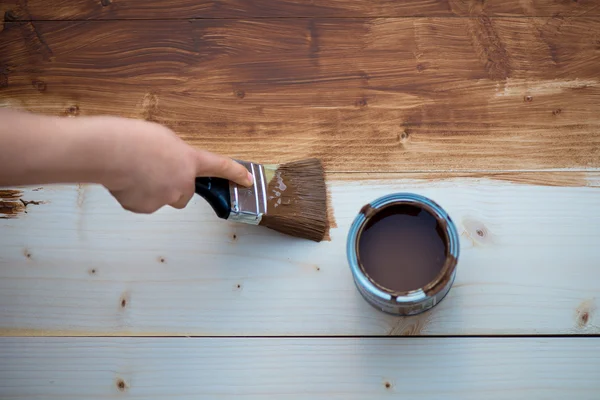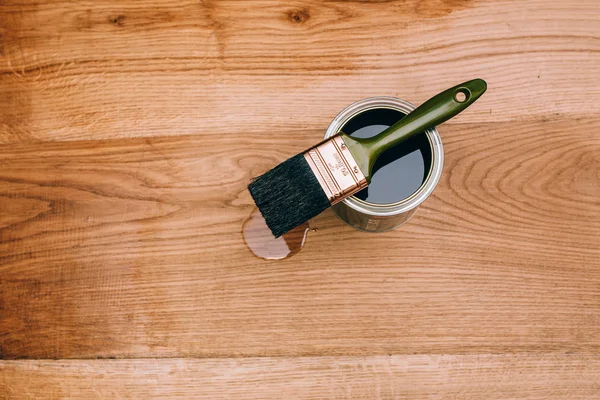Why Regular Deck Oiling Is Essential For Wood Protection
Wooden decks are a valuable addition to any home, providing a natural, warm aesthetic and an outdoor space for relaxation and entertainment. However, to maintain their beauty and longevity, these structures require consistent care. One of the most effective ways to protect a wooden deck is through regular oiling. Deck oiling not only preserves the wood's appearance but also serves as a protective barrier against environmental factors. This article explores why regular deck oiling is crucial for the protection and maintenance of wooden decks.
Understanding Deck Oiling
Deck oiling involves applying a specialized oil that penetrates deep into the wood's fibers. Unlike surface treatments like stains or paints, which sit on top of the wood, oils are absorbed, ensuring the wood retains its natural look while benefiting from enhanced protection. The oils nourish the wood, keeping it from drying out and cracking, and provide a layer of defense against moisture, UV rays, and other environmental elements.
Protecting Against Moisture and Rot
One of the primary threats to a wooden deck is moisture. When wood absorbs water, it expands, leading to warping, swelling, and eventually cracking when the moisture dries out. Over time, prolonged exposure to water can also cause the wood to rot. Regular oiling helps to repel water by creating a protective barrier on the wood’s surface. This barrier reduces the amount of water that can penetrate the wood, helping to prevent warping and rot, which could compromise the structural integrity of the deck.
Defending Against UV Damage
Exposure to the sun’s ultraviolet (UV) rays is another major factor that can degrade a wooden deck. UV rays cause the wood to fade and become discolored over time, turning the wood gray and dull. This not only diminishes the deck’s appearance but also weakens the wood, making it more susceptible to cracking and splintering.

Preventing Cracks and Splinters
As wood dries out, it tends to shrink, which can lead to cracks and splinters. Cracking not only affects the aesthetics of the deck but also poses safety hazards, especially for those walking barefoot on the surface. Regular oiling replenishes the wood’s natural oils, preventing it from drying out and cracking. This keeps the surface of the deck smooth and safe to walk on.
Enhancing Durability and Lifespan
A well-maintained, oiled deck can last significantly longer than an untreated one. Oiling helps to preserve the wood’s structural integrity, preventing it from succumbing to damage from moisture, UV exposure, and physical wear and tear. This means that with regular care, you can avoid costly repairs or replacements down the line.
Maintaining the Natural Beauty of the Wood
One of the primary reasons homeowners choose wooden decks is for their natural, organic beauty. Unlike synthetic materials, wood has unique grains and tones that give each deck its own character. Regular oiling enhances the wood’s natural beauty by bringing out the depth of its color and highlighting its grain. This treatment not only protects the deck but also maintains its aesthetic appeal, ensuring that it remains a focal point of outdoor living spaces.
Easy Application and Maintenance
Oiling a deck is a relatively simple maintenance task that does not require specialized skills or equipment. Deck oils are easy to apply and generally require minimal preparation, especially if the deck is regularly maintained. By incorporating oiling into your routine deck care, you can prevent larger issues from developing, reducing the need for extensive cleaning, repairs, or even replacement.
How Often Should You Oil Your Deck?
The frequency of oiling depends on several factors, including the type of wood, the climate, and the level of use. In general, most decks benefit from oiling at least once or twice a year. For decks in harsher climates or those exposed to extreme weather conditions, more frequent oiling may be necessary.

Maintaining Comfort in Outdoor Spaces
Wooden decks are often central to outdoor living areas, providing a space for relaxation, dining, and socializing. For these spaces to remain comfortable and inviting, the wood must be well-maintained. Regular deck oiling contributes to the overall comfort and enjoyment of the deck by keeping the wood in optimal condition.
Temperature Control
Oiled wood tends to be cooler to the touch than untreated wood, especially under direct sunlight. This makes the deck more comfortable to walk on during hot weather. In contrast, untreated wood can absorb more heat, making it uncomfortable for bare feet. By regularly oiling your deck, you can help maintain a more pleasant surface temperature, enhancing the overall usability of your outdoor space.
Aesthetic Appeal
A beautiful deck enhances the ambiance of any outdoor setting. The natural grain and color of the wood are often key features that homeowners want to preserve. Oiling brings out the richness and depth of the wood’s natural tones, creating a visually appealing space that complements the surrounding environment. Whether you are hosting gatherings or simply enjoying a quiet evening outdoors, a well-maintained, oiled deck adds to the overall aesthetic experience.
Key Benefits of Deck Oiling for Safety
- Reduces Splinters: By keeping the wood flexible and strong, oiling minimizes the risk of splinters, making the deck safer for barefoot walking.
- Low Maintenance: Regular oiling simplifies long-term care, reducing the need for deep cleaning or repairs that would be necessary with neglected wood.
- Quick Application: Deck oils are easy to apply and often dry within hours, allowing for minimal disruption to the use of your deck.
- Eco-Friendly Options: Many modern deck oils are made from sustainable, low-VOC ingredients, making them environmentally responsible choices.
- Improved Safety: Oiled decks are less slippery when wet, making them safer for use in all weather conditions.
Hawthorn VIC, Australia
Phone: 1800-332-525

